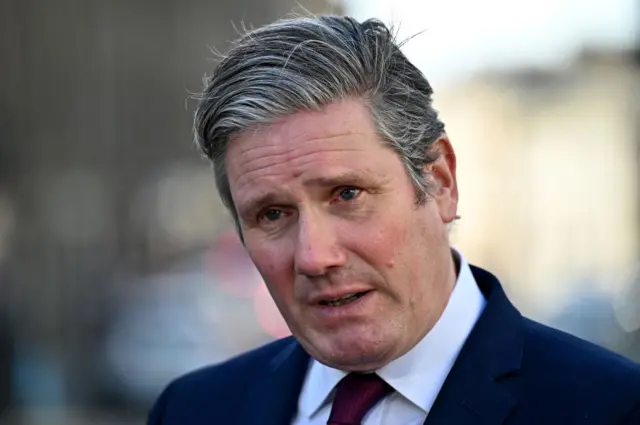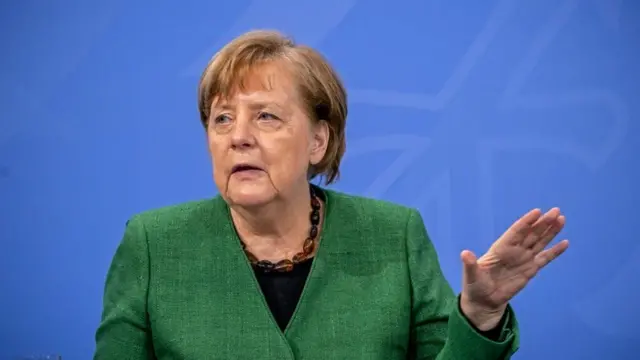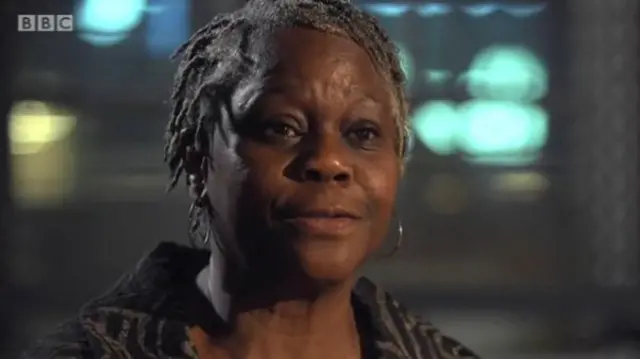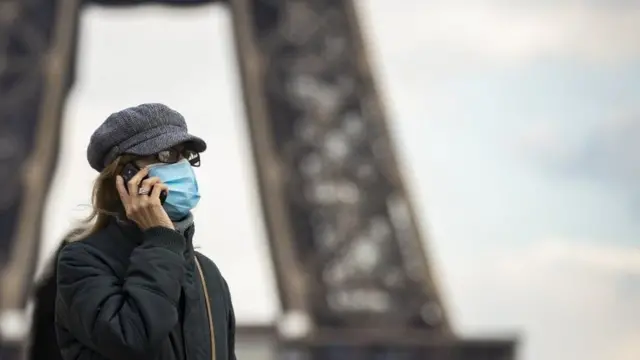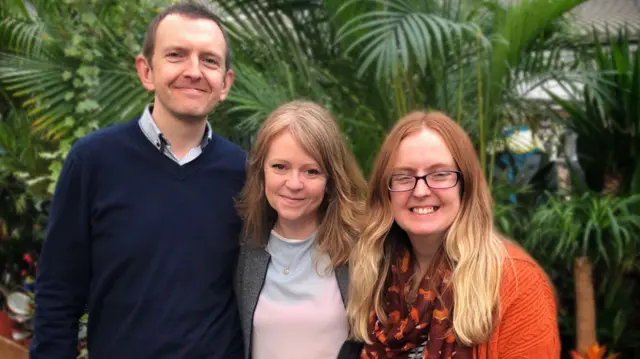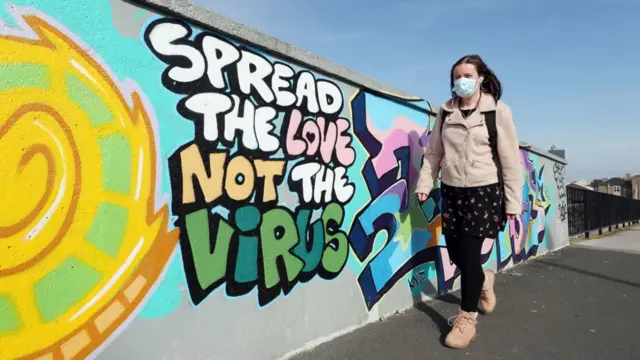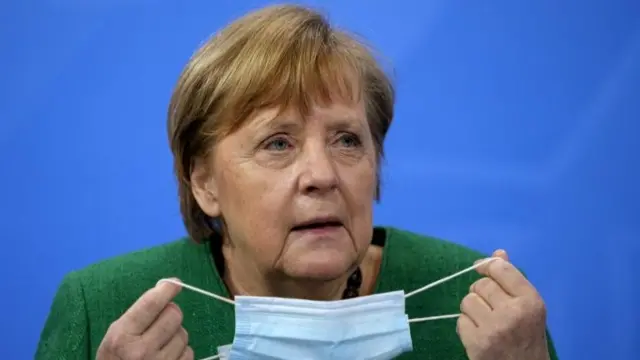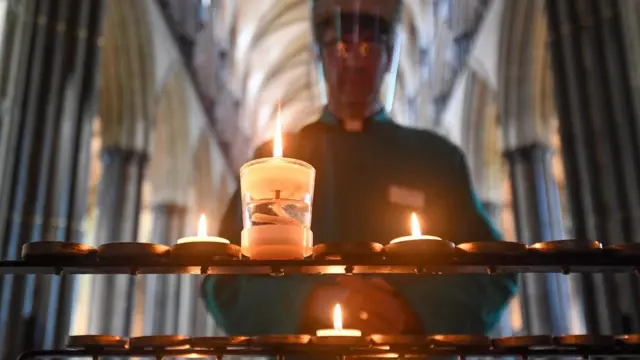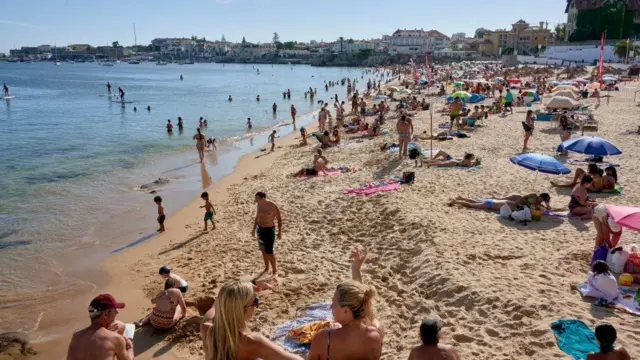UK considering traffic light system for overseas travelpublished at 09:37 GMT 23 March 2021
 Adam Fleming
Adam Fleming
Chief political correspondent
 Image source, Getty Images
Image source, Getty ImagesThe government’s global travel taskforce is considering a tiered or traffic light system for international travel when the ban on leaving the country is lifted.
The discussion is focusing on what restrictions would apply to travellers returning from destinations in the lowest level.
“How green is green?” in the words of one adviser.
Health Secretary Matt Hancock told the Today programme earlier that the government had to take into account rising cases in Europe.
“It’s reasonable to take a precautionary and careful approach, which is what we are doing at the borders.”
He said there were no current plans to put all of Europe on the so-called “red list”, from which travel into the UK is banned. British nationals and people who are normally resident in the UK returning from these countries have to enter hotel quarantine upon arrival.
The intention is to publish the framework on 12 April, with decisions about which countries are in which tier to be taken later.
The prime minister’s roadmap for lifting the lockdown says international travel could resume from 17 May, but officials cannot guarantee this will happen.
Testing for children who travel is being considered because there are no plans for under-18s to be vaccinated.
Read our explainer here on when summer holidays may be allowed.
